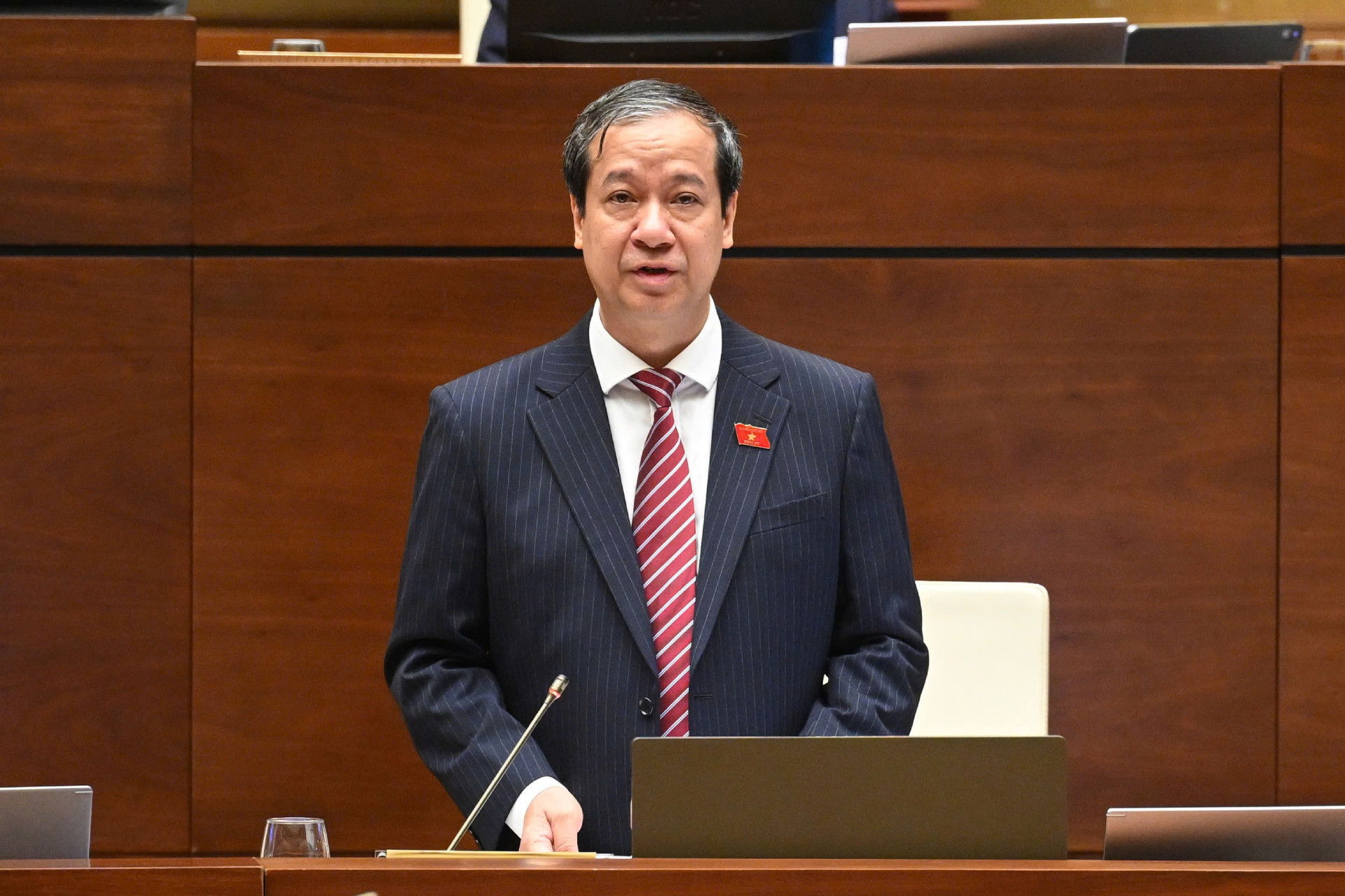Delegate Nguyen Minh Tam (Quang Binh) acknowledged the ministry’s recent efforts to address school violence. However, she noted that since 2023, the situation - especially on social media - has worsened, with long-lasting consequences.
She questioned when school violence would cease entirely and whether the minister could commit to a timeline, as well as clarify the school’s responsibilities in handling such incidents.

Responding, Minister Nguyen Kim Son said that educators, more than anyone, long for schools to be free from violence and to become “happy schools.” However, he stressed that schools are not isolated from society. The boundary between the school and the outside world has become increasingly porous, blurred further by the internet, social media, and modern communication technologies.
“As a component of society, the issue of social violence, especially in today’s world, remains complex,” the minister said. “If you ask when violence will disappear from schools, my answer is: the day adults stop fighting. On that day, children will look at each other with pure affection,” he added.
Acknowledging the difficulty of that goal, the minister emphasized the need to confront reality and take every measure to reduce, support, and manage violence as much as possible.
He shared that data from the Ministry of Education indicates that 70% of students who exhibit violent behavior come from troubled family backgrounds - divorced parents, exposure to domestic violence, or having experienced abuse themselves. These factors significantly influence their attitudes, behavior, and mental health. “The family’s role, and especially the example set by adults, is crucial to moral and character education,” he said.
In schools, psychological support, moral education, and positive reinforcement must be increased to prevent students from turning to violence. “Naturally, schools must play a vital role in this. We will do everything we can,” the minister affirmed.
In a follow-up debate, delegate Truong Trong Nghia (Ho Chi Minh City) stressed that education is a long-term endeavor requiring the cooperation of the state, society, and families - three indispensable pillars. “We’re questioning the minister as a representative of the state’s role. But morality, compassion, and kindness - values we’re trying to protect - are also heavily influenced by families and society,” he said.
He referenced some developed countries that have restricted student access to smartphones and social media, noting that these tools expose users to both positive and harmful content. “Children lack the awareness and self-control to manage this. Even if the state has a sound policy, if families are negligent and societal institutions like media and entertainment ignore their educational role, then the ‘mission of nurturing humans’ cannot succeed,” he said.
He proposed that the National Assembly issue a resolution emphasizing the critical role not only of the state but also of individuals and organizations in society and families. He cited the parental control feature on TVs that restricts age-inappropriate content, asking how many parents actually use it.
In response, Minister Son agreed with Nghia’s remarks, stating that the education sector fully supports the view that collaboration between families, schools, and society is indispensable. “We cannot achieve quality education without the joint efforts of all three. I completely agree and appreciate the delegate’s perspective,” he stated.
Addressing school violence again, delegate Nang So Vi (Kon Tum) pointed out that despite ministerial reports highlighting school violence as a serious concern, the issue is shifting from physical to psychological forms - especially online. In remote and ethnic minority regions, students often lack self-protection skills, teachers shoulder multiple roles, and schools lack psychological experts.
She asked the minister for an assessment of the situation in underprivileged areas and whether the ministry has a plan to ensure a safe, healthy, and humane learning environment.
Minister Son acknowledged that schools in urban and densely populated areas face different challenges than those in remote regions. “To be fair, school violence in remote areas is not as complex as in cities. However, cyberbullying is more severe and widespread. About 20–25% of school violence cases now occur online, and this rate is rising,” he noted, emphasizing the need to focus more on preventing violence in digital environments.
Tran Thuong